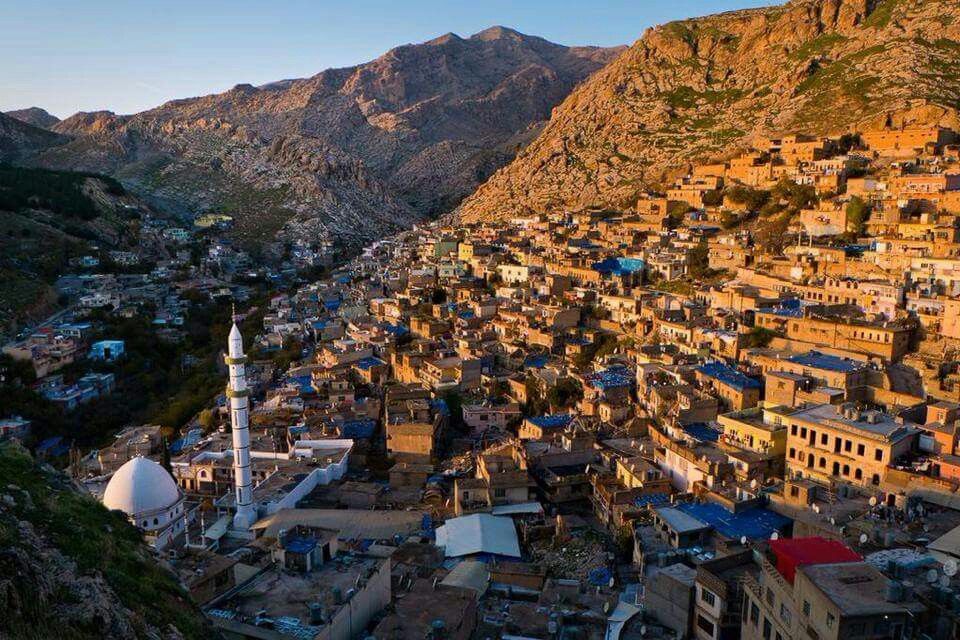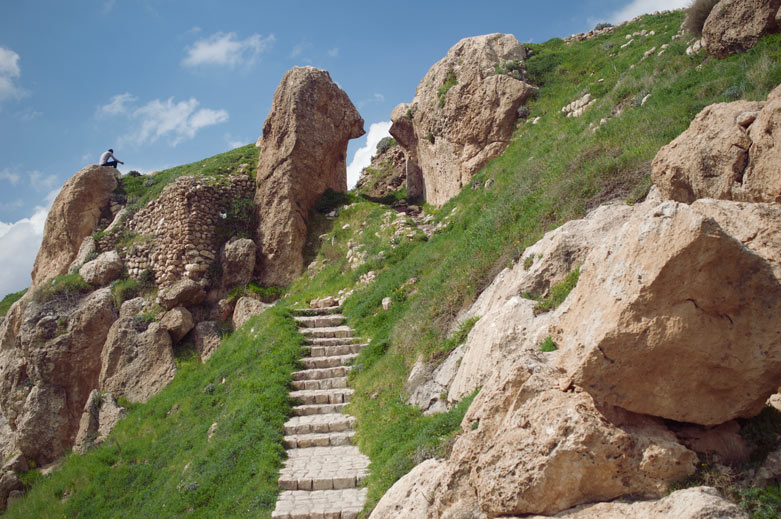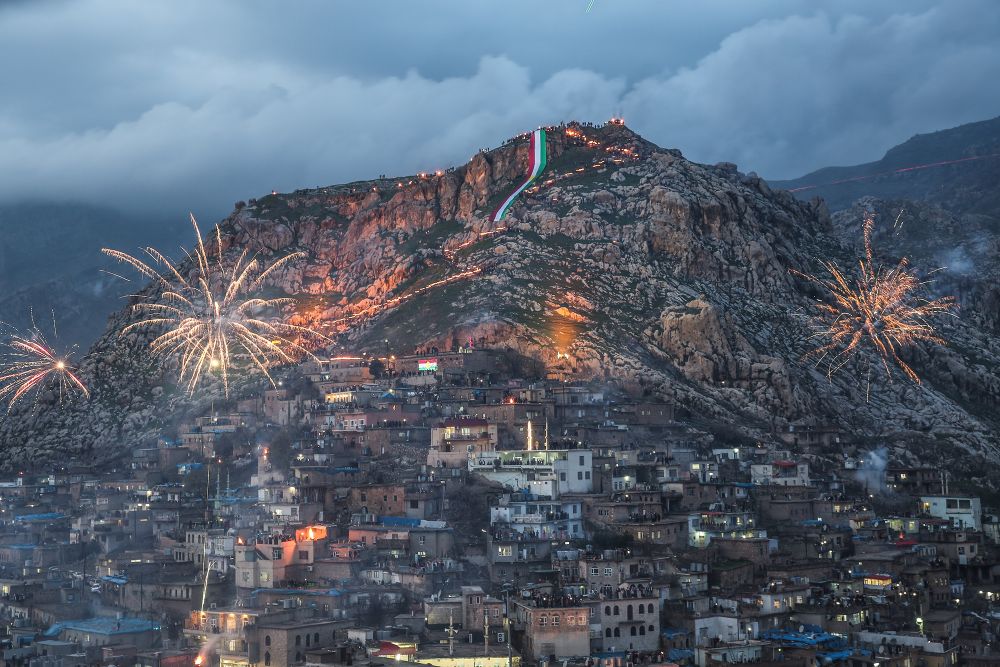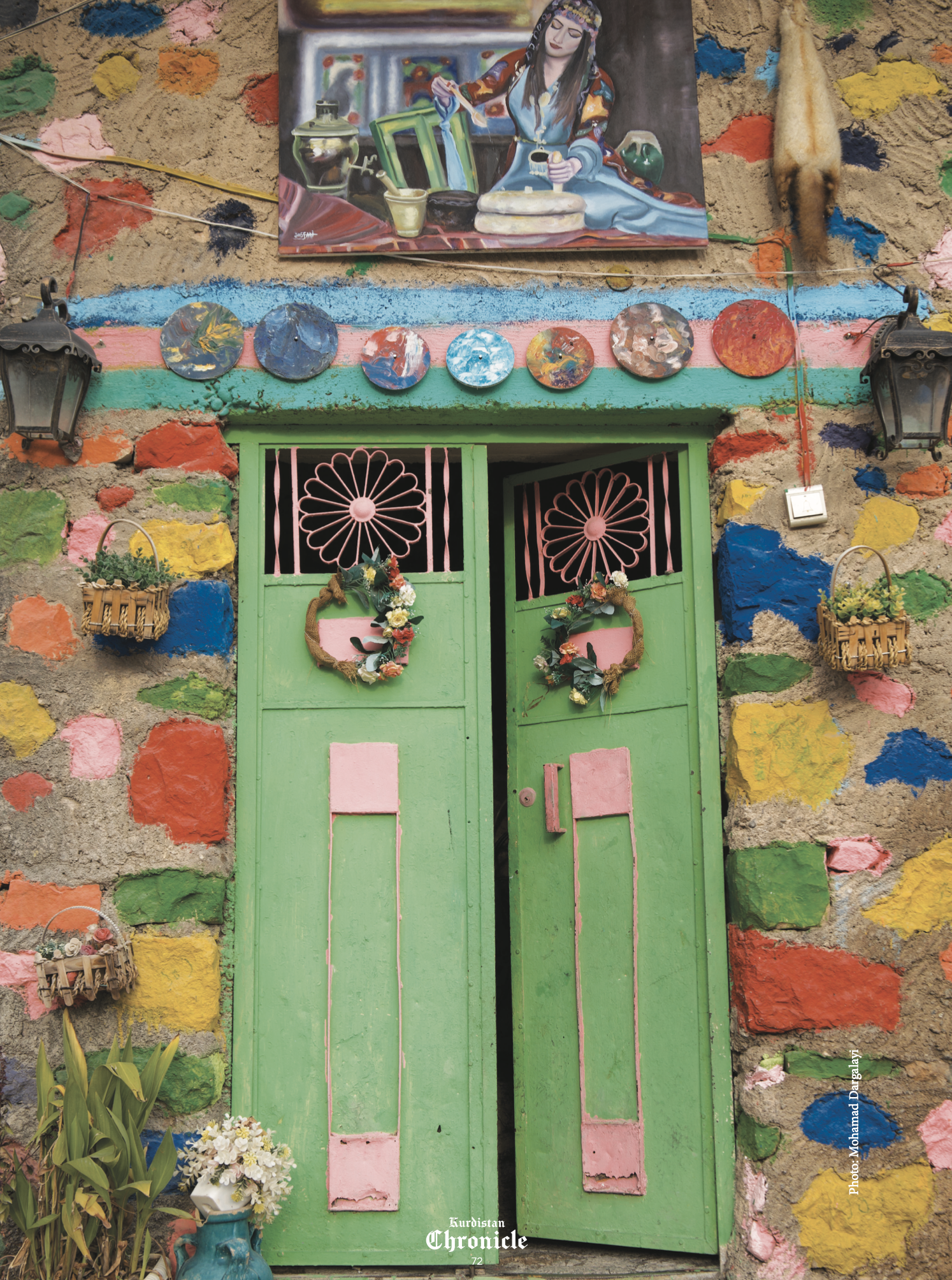Akre, an ancient town with millennia of rich history and cultural heritage, could emerge as a potential future hub for tourism in the Kurdistan Region. The town, a bit over one hour's drive from the capital of Erbil, was built on the side of a mountain range by the Kurdish Prince Zand in 580 B.C.
Akre and its countryside boast a remarkable array of temples, caves, statues, waterfalls, and old buildings. The town's culinary delights and agricultural products include ice cream, rice, figs, and other local produce. Meanwhile, its rich heritage showcases religious coexistence, adding to its historical and cultural allure.
“Akre has been a homeland for different religious groups, including Jews, Christians, and Muslims. These communities have been living here in peace. They never fought each other,” Kaywan Kadhim Abdulrahman, the female owner of the traditional Kurdish Xanedan restaurant, told Kurdish Chronicle.

The Akre region also has a Zoroastrian temple, a synagogue, old churches, and the shrine of the Sufi Sheikh Abdul Aziz Gailani, where dervishes perform religious ceremonies and dances.
“If they have disagreements or conflicts, they have developed their own mechanisms to resolve them. There are currently no Jews left in Akre and very few Christians but they are respected by the rest of the people from Akre,” she added.
The capital of Newroz
Akre is derived from the Kurdish word agir meaning fire. During the annual Newroz celebrations on March 20, locals adorned with fire torches descend from the majestic mountains surrounding the town. This captivating tradition, accompanied by a dazzling firework show, embodies the spirit of Newroz, creating a mesmerizing spectacle in Akre.
Tariq Aqrawi, the former Ambassador of Iraq to Austria and a prominent figure in Akre, highlights the long-standing tradition of Newroz celebrations in the town. He mentions that even during the oppressive rule of the Baath regime, “young people went to the mountains and celebrated secretly.”

However, significant changes occurred after the establishment of a no-fly zone by Western coalition partners in 1991 to safeguard the Kurds from Saddam's regime. The subsequent free elections in Kurdistan and the formation of the Kurdistan Regional Government in 1992 transformed the way that Newroz was celebrated in Akre.
“After 1992, it became very free,” Ambassador Aqrawi said. “It became a very big celebration, unlike other towns, with torches in the mountains. Just as people call Suleimani the capital of culture, Akrawis call Akre the capital of Newroz. Because it is really special.”
Due to the vibrant and beautiful celebrations in the town, Akre attracts visitors from far and wide.
“Every year, there are thousands of people who come from different places to visit Akre on the eve of Newroz,” restaurant owner Abdulrahman said. “There are also foreign tourists who visit from the United States, Canada, Spain, Australia, and the Netherlands, in addition to internal tourists from Erbil, Duhok, and Zakho.”
Diana, a Hungarian tourist who visited Akre, describes on her website how she walked up through the narrow alleys of Akre to the castle on the top of the Kale mountain overviewing the town. “The castle is just a ruin, but the landscape is incredible there,” she wrote.
Building tourism infrastructure
Abdulrahman and her husband opened the Xanedan restaurant to benefit from the boom in tourism. The restaurant offers local food and sometimes also has performances by local musicians. “My husband and I were thinking of building this restaurant, a place that would offer breakfast, lunch and dinner,” she said.
“There were restaurants in Akre but nothing as traditional as Xanedan – other restaurants were not offering breakfast. We wanted to come up with something new and different in Akre since our area is full of homemade foods.”
Another famous restaurant is Qalia Akre (Akre castle), which offers a traditional cooked sheep meat called kalya. Moreover, Akre has a famous local ice cream shop dating to 1958, selling ice cream made from locally produced milk.
Akre also boasts abundant water resources and is home to the renowned Sipa waterfall located near the center of the town as well as the breathtaking Sile waterfall in the countryside. Moreover, Akre’s children all have learned to swim in the local pond of Kani Zark.
Ambassador Aqrawi fondly reminisces about his childhood, recalling a time when the Sipa waterfall received very few visitors, mostly consisting of locals from Akre. “When I was child, the waterfall had almost no visitors.”
“Only people from Akre visited the waterfall. It was very nice, and there were no buildings around it,” Ambassador Aqrawi said.

However, after the fall of Saddam, “mass tourism started from southern Iraq, Basra, Baghdad, and Mosul; they came with buses,” Ambassador Aqrawi said. The waterfall is now surrounded by several restaurants, an artificial cave, and local shops that sell local products.
Situated just outside Akre, the Gali Zanta valley has also undergone a remarkable transformation into a bustling tourist hotspot. The area is replete with numerous tourism resorts that cater to visitors seeking refreshing swimming spots to escape the summer heat.
Also many Kurdish tourists visit Akre for short trips for its beautiful scenery. “The road is very easy from Erbil to Akre. Some people come to have lunch in Akre, and take some pictures.”
However, Ambassador Aqrawi said tourism also created problems such as heavy traffic in the town and created a shortage of parking. “They have to solve these problems as soon as possible in order not to destroy the old town,” he said. “Too many roads and streets could destroy the old town.”
He added that the Kurdish town of Mardin in Turkey could be an example for the development of Akre. “It’s very nice, they kept the old buildings, restored everything, and there is a lot of tourism. We hope for such support.”
Another issue is the lack of hotels. “For tourism you need hotels but you cannot find a good hotel in Akre. That's why some foreigners are happy to come to my house and sleep there,” he added.
Abdulrahman added that there are now people in Akre thinking “how to turn their homes into hotels. My cousin is also planning to open a traditional hotel in Akre.”
Therefore, with its breathtaking mountain scenery, remarkable architecture and history, captivating waterfalls, and vibrant Newroz celebrations, Akre offers a compelling allure as a flourishing tourism destination.
However, further renovations, the addition of hotels, and the resolution of traffic issues are needed to fully unlock its potential. Akre stands poised to thrive in tourism, awaiting the necessary enhancements to accommodate and enchant visitors from near and far.
Wladimir van Wilgenburg is a seasoned reporter and analyst who specializes in Kurdish affairs, and holds a Master's degree in Kurdish studies from Exeter University.

